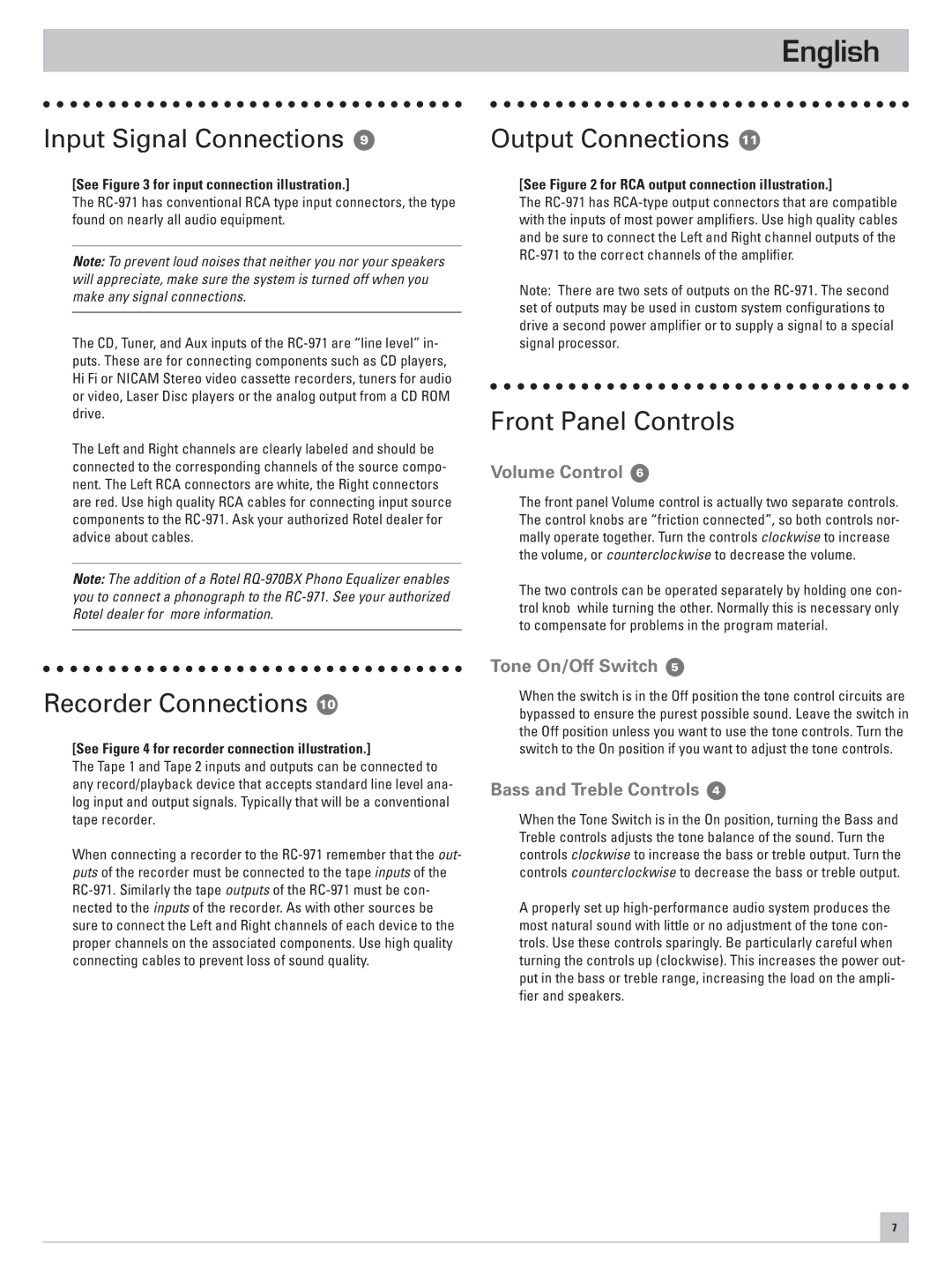RC-971 specifications
The Rotel RC-971 is a high-performance stereo preamplifier that embodies the brand's commitment to quality audio reproduction. Introduced as a part of Rotel’s comprehensive lineup, the RC-971 serves as a critical component in any high-fidelity sound system, providing exceptional sound quality and connectivity options tailored to audiophiles and casual music lovers alike.One of the standout features of the RC-971 is its meticulous design aimed at minimizing signal degradation. It employs high-quality components, including metal film resistors and polypropylene capacitors, which contribute to its outstanding signal-to-noise ratio. This attention to detail helps to ensure that the audio output remains pure, delivering rich, detailed sound across a wide frequency range.
The RC-971 is equipped with a versatile selection of inputs and outputs, allowing users to connect multiple audio sources effortlessly. It includes several line-level inputs, a phono input for vinyl enthusiasts, and dedicated outputs for both tape and auxiliary devices. Additionally, the preamp offers balanced XLR outputs for professional audio applications, delivering improved noise immunity and can be used to connect to high-end power amplifiers.
Another significant technology integrated into the RC-971 is Rotel’s exclusive RDB (Rotel Digital Bridge) architecture. This technology enhances the preamp’s digital performance, allowing users to enjoy high-resolution audio playback from digital sources. Together with robust analog circuitry, the RC-971 caters to a variety of audio formats, ensuring versatility in playback.
Furthermore, the RC-971 is notable for its precise volume control mechanism, which utilizes a smooth and reliable motorized potentiometer. This allows for accurate adjustments, ensuring that listeners can achieve the perfect sound level without distortion.
The design of the RC-971 is as functional as it is elegant, featuring a clean and modern aesthetic that fits well into any audio setup. Its solid build quality not only contributes to longevity but also reduces physical vibrations that could interfere with audio performance.
In summary, the Rotel RC-971 preamplifier is a high-quality audio component that reflects Rotel’s passion for audio excellence. With its superior build quality, innovative technologies, and flexible connectivity options, the RC-971 stands out as an exceptional choice for anyone serious about sound quality in their home audio system. Whether you’re listening to vinyl records or streaming digital music, the RC-971 is designed to deliver an unparalleled listening experience.

